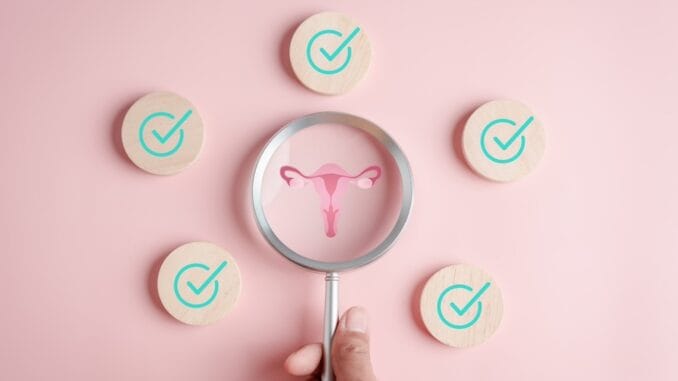
Best Practices for Vaginal Hygiene During Periods: Tips for Comfort and Health
Maintaining vaginal hygiene during periods is crucial for comfort and health. Changing pads or tampons on time, using breathable underwear, avoiding scented products, and regular bathing help prevent infections. Hydration and light exercise further support well-being, while safe disposal of sanitary items ensures cleanliness.
💪 Fitness Guru
37 min read · 27, Sep 2025

Introduction
Periods are a natural and vital part of a woman’s life, yet they often come with discomfort, mood swings, and hygiene challenges. Good vaginal hygiene during menstruation is not just about staying fresh—it’s about preventing infections, reducing odor, ensuring comfort, and maintaining confidence. Unfortunately, many women either follow outdated practices or overlook the importance of proper menstrual hygiene, leading to irritation, bacterial infections, and long-term reproductive issues.
The good news is that with the right habits, products, and self-care, you can make your periods more comfortable and hygienic. In this article, we’ll explore the best practices for vaginal hygiene during periods, the science behind it, common mistakes, and simple daily routines you can adopt for long-term comfort and health. Menstruation is a natural part of every woman’s life, yet it often comes with discomfort, uneasiness, and concerns about hygiene. Maintaining vaginal hygiene during periods is not just about feeling fresh—it is essential for overall reproductive health. When menstrual blood is released from the body, it creates a warm, moist environment that can allow bacteria to grow if hygiene is neglected. This can lead to infections, irritation, and unpleasant odor. With the right care, however, you can ensure comfort, confidence, and protection of your intimate health throughout your cycle.
The first and most important practice during periods is to change your sanitary product regularly. Whether you use pads, tampons, menstrual cups, or period panties, keeping them clean and changing them on time is essential. Sanitary pads should be replaced every 4–6 hours, even if the flow is light. Keeping a pad on for too long allows bacteria to multiply, which can cause rashes, bad odor, and in some cases, urinary tract infections. Tampons should be changed every 4–8 hours to reduce the risk of Toxic Shock Syndrome (TSS), a rare but serious condition caused by bacterial toxins. Menstrual cups, being reusable, should be emptied and washed every 8–12 hours depending on flow, and always sterilized before and after each cycle. Following this simple routine prevents infections and helps you stay fresh.
Equally important is washing the vaginal area correctly. Many women believe frequent washing with soap keeps them clean, but in reality, the vagina has its own natural cleansing mechanism. The healthy bacteria present in it maintain a slightly acidic environment that protects against infections. Harsh soaps, scented washes, or chemical-based products can disturb this balance, leading to irritation or yeast infections. The best practice is to wash the external area of the vagina, known as the vulva, with warm water or a mild, unscented cleanser. Washing two to three times a day during your period is usually enough. Overwashing can actually strip away natural oils and cause dryness or itching.
Another factor that plays a huge role in vaginal hygiene during periods is wearing the right kind of underwear and clothing. Tight synthetic fabrics do not allow the skin to breathe, trapping moisture and heat that encourage bacterial growth. Cotton underwear is the best choice because it is breathable, soft, and gentle on sensitive skin. If you are prone to heavy sweating, changing underwear more than once a day during periods is advisable. When it comes to outerwear, try avoiding extremely tight jeans or leggings for long hours during your cycle; opt for comfortable, breathable outfits that give you both ease of movement and hygiene.
Proper disposal of sanitary products is also part of maintaining hygiene. Used pads and tampons should never be flushed down the toilet, as they can clog pipelines and are harmful to the environment. Wrap them properly in paper or the provided disposal cover and discard them in a dustbin. If you are outside, look for sanitary disposal units often available in restrooms. Keeping a small pouch with extra pads, tissues, and hand sanitizer in your bag ensures you are prepared at all times and can maintain hygiene even on the go.
Hydration and diet during periods also indirectly affect vaginal hygiene. Drinking plenty of water helps flush out toxins and prevents bloating. Eating nutrient-rich foods like fruits, vegetables, and iron-rich meals helps your body recover from blood loss and reduces fatigue. Avoiding excessive sugar and processed food can help prevent yeast infections, which sometimes flare up during hormonal changes. Probiotic foods like yogurt may also support healthy vaginal flora, which acts as a natural defense against infections.
Good hygiene during menstruation is not just physical—it also involves self-care habits that reduce stress and improve comfort. Taking a warm shower daily helps relieve cramps and keeps the body refreshed. Practicing relaxation methods like light yoga, stretching, or breathing exercises can ease period pain and regulate mood swings. Stress often affects hormonal balance, which can in turn disrupt menstrual health, so managing it is another way of maintaining intimate well-being.
One often overlooked aspect of period hygiene is handwashing. Before and after changing a pad, tampon, or cup, it is essential to wash hands thoroughly with soap and water. This reduces the transfer of germs to the vaginal area and minimizes the risk of infection. It is a small step but one of the most powerful in ensuring cleanliness during periods.
Sleep and rest are equally vital. Lack of proper sleep can weaken immunity, making the body more vulnerable to infections. Using overnight sanitary pads designed for longer wear or menstrual cups can give peace of mind during sleep and help avoid leaks. At the same time, it is advisable to take a shower or freshen up before bed to feel clean and comfortable.
For women who experience itching, unusual odor, or abnormal discharge during periods, it is important not to ignore these signs. These could indicate bacterial or fungal infections that need medical attention. Avoid self-medicating with over-the-counter products without a doctor’s advice. Regular gynecological check-ups, even if you feel healthy, are a good way to ensure long-term reproductive health.
Cultural taboos around menstruation often prevent women from discussing hygiene openly, but breaking this silence is necessary. Every woman deserves to manage her period with dignity and confidence. Education about proper hygiene should begin early, teaching young girls how to care for themselves without shame or embarrassment. At the same time, families and communities must support open conversations to reduce stigma and promote healthy practices.
In summary, maintaining vaginal hygiene during periods is about more than just feeling fresh—it is about protecting yourself from infections, staying comfortable, and respecting your body. The key practices include changing sanitary products on time, washing the vulva gently with water, wearing breathable cotton underwear, disposing of pads properly, staying hydrated, and managing stress. By incorporating these habits, you can go through your menstrual cycle with confidence, ease, and better health. Remember, your period is a natural and powerful part of being a woman, and caring for yourself during this time is one of the greatest acts of self-love.
Why Vaginal Hygiene Matters During Periods
The vagina is self-cleaning, but during menstruation, blood flow creates a warm and moist environment where bacteria can grow if hygiene is neglected. Proper menstrual hygiene helps in:
- Preventing urinary tract infections (UTIs)
- Avoiding rashes and skin irritation
- Controlling odor
- Reducing the risk of reproductive tract infections
- Promoting overall comfort and confidence
Ignoring hygiene may lead to yeast infections, bacterial vaginosis, bad odor, and even long-term health complications.
Best Practices for Vaginal Hygiene During Periods
1. Change Pads or Tampons Regularly
Never wear a pad, tampon, or menstrual cup for too long.
- Change pads every 4–6 hours
- Change tampons every 3–5 hours
- Empty and wash menstrual cups every 8–10 hours
- This prevents bacterial growth, irritation, and odor.
2. Wash the Vaginal Area Properly
- Use mild, unscented soap or just warm water
- Wash from front to back to avoid spreading bacteria
- Avoid harsh scrubbing—gentle cleansing is enough
- Never use vaginal douches as they disturb natural pH balance
3. Wear Breathable Underwear
- Prefer cotton panties over synthetic fabrics
- Avoid very tight clothing during periods
- Change underwear if it feels damp to prevent rashes and itching
4. Dispose of Pads and Tampons Safely
- Wrap used pads or tampons in paper or disposal bags
- Do not flush them in toilets (can cause blockages)
- Maintain hygiene not just for yourself but also for your surroundings
5. Stay Hydrated and Maintain a Healthy Diet
Drinking plenty of water flushes toxins and reduces bloating. Iron-rich foods (spinach, beets, lentils) replenish blood loss, while Vitamin C helps with better absorption of iron. Hydration also helps reduce cramps.
6. Avoid Scented Products
Stay away from scented pads, panty liners, wipes, or vaginal sprays. These contain chemicals that irritate sensitive skin and upset vaginal flora. Natural is always better.
7. Keep the Area Dry
Blood and sweat can make the vaginal area moist, leading to bacterial growth.
- Pat dry after washing
- Change pads quickly if they feel wet
- Use soft tissue or cotton cloth to keep the area dry
8. Practice Safe Sex During Periods
If engaging in intimacy during periods:
- Use protection to prevent STIs and infections
- Ensure both partners practice proper hygiene
Daily Hygiene Routine During Periods
Morning
- Start with a warm shower to refresh the body
- Wash the vaginal area gently with water or mild soap
- Wear a fresh cotton panty and sanitary product
Midday
- Change pad/tampon/cup even if not fully soaked
- Wash hands before and after handling menstrual products
- Carry wipes or tissue for on-the-go hygiene
Evening
- Change to a fresh sanitary product before bedtime
- Wear loose, breathable sleepwear
- Lightly stretch or sip herbal tea to ease cramps
Weekly Practices for Menstrual Comfort
- Wash undergarments in hot water with mild detergent after your cycle
- Sun-dry panties for natural sterilization
- Track your cycle and prepare products in advance
- Practice yoga or light exercise to improve blood flow and reduce cramps
- Take iron supplements if prescribed, especially if you feel weak
Common Period-Related Hygiene Problems & Prevention
1. Rashes and Itching
Cause: Wearing pads for too long, dampness, or synthetic fabric
Prevention: Change pads frequently, use rash cream or aloe vera gel if irritation occurs
2. Bad Odor
Cause: Bacterial growth from poor hygiene
Prevention: Regular washing, frequent pad changes, avoid scented sprays
3. Yeast Infections
Cause: Moist environment, tight clothes
Prevention: Cotton underwear, keeping area dry, avoiding sugary foods
4. UTIs
Cause: Bacteria spreading from anus to vagina
Prevention: Wipe front to back, stay hydrated, don’t delay urination
Myths About Vaginal Hygiene During Periods: Busted!
“You should wash inside the vagina with soap.”
→ False! The vagina cleans itself naturally. Washing inside disrupts healthy bacteria.
“Periods are dirty or impure.”
→ Absolutely false. Menstruation is a natural biological process, not something shameful.
“Tampons or menstrual cups are unsafe.”
→ Not true. They are safe when used and changed properly.
“You cannot exercise or bathe during periods.”
→ Wrong! Exercise and baths actually reduce cramps and improve mood.
“Only expensive products can keep you clean.”
→ False. Simple water, cotton underwear, and regular changes are enough.
Sample Period Self-Care Routine for Comfort & Hygiene
Morning
- Warm shower with gentle wash
- Fresh pad or tampon + cotton underwear
- Breakfast with iron-rich foods like oats with nuts
Daytime
- Change pad every 4–5 hours
- Stay hydrated with lemon water or herbal tea
- Do light stretching or walking for cramps
Evening
- Quick wash and change before bed
- Loose clothing for comfort
- Herbal tea with ginger or chamomile for relaxation
After Period Ends
- Wash all underwear properly
- Clean menstrual cup (if used) with boiling water
- Moisturize skin to heal any rashes
Conclusion
Maintaining vaginal hygiene during periods is about comfort, health, and self-respect. By adopting simple habits—like changing pads regularly, washing gently, wearing breathable underwear, and staying hydrated—you can prevent infections, reduce discomfort, and feel confident throughout your cycle.
Periods are not something to hide or feel embarrassed about. They are a natural rhythm of your body. With mindful care and hygiene, you can transform this time of the month from being stressful to being a period of self-care and strength.
Your body deserves gentle care. Treat it with love, and it will reward you with lasting health and comfort.
Q&A Section
Q1:- Why is maintaining vaginal hygiene during periods important?
Ans :- Proper hygiene prevents infections, reduces odor, maintains pH balance, and ensures overall comfort, helping women stay healthy during menstruation.
Q2:- How often should sanitary pads be changed during periods?
Ans :- Pads should be changed every 4–6 hours to prevent bacterial growth, odor, and rashes. For heavy flow, changing more frequently is recommended.
Q3:- Is it safe to use tampons or menstrual cups?
Ans :- Yes, both are safe if used correctly. Tampons should be changed every 4–8 hours, while menstrual cups can last 6–12 hours depending on flow.
Q4:- Why should scented products be avoided for vaginal care?
Ans :- Scented soaps, sprays, and wipes disturb the natural flora and pH of the vagina, increasing the risk of irritation, dryness, and infections.
Q5:- How does regular bathing help during menstruation?
Ans :- Bathing cleanses sweat, blood, and bacteria from the body, reducing odor and discomfort, while also promoting relaxation and freshness.
Q6:- What kind of underwear is best to wear during periods?
Ans :- Breathable cotton underwear is best as it absorbs moisture, reduces irritation, and helps maintain airflow, lowering the risk of infection.
Q7:- Should intimate washes be used during periods?
Ans :- Intimate washes are not necessary; plain water is best. If used, they must be pH-balanced and mild to avoid disturbing natural vaginal health.
Q8:- How does staying hydrated support vaginal health?
Ans :- Drinking enough water helps flush toxins, reduces bloating, and keeps the body and vaginal tissues hydrated, lowering the risk of dryness.
Q9:- Can exercise be done during periods for better hygiene?
Ans :- Light exercise like walking or yoga improves blood circulation, reduces cramps, and supports better mood without affecting hygiene if pads/cups are changed timely.
Q10:- Why is proper disposal of sanitary products necessary?
Ans :- Safe disposal prevents foul odor, bacterial spread, and environmental pollution. Wrapping products in paper before discarding is the most hygienic practice.
Similar Articles
Find more relatable content in similar Articles

Monks and Movement: Spiritual Fitness Practices from Temples..
“Exploring the ancient wisdom .. Read More

Best Practices for Vaginal Hygiene During Periods: Tips for ..
Maintaining vaginal hygiene du.. Read More

Superfoods that naturally boost immunity..
Superfoods are nature’s immun.. Read More

Fitness for Gamers: Keeping Body Active During Long Gaming H..
“Balancing Mental Focus with P.. Read More
© 2024 Copyrights by rFitness. All Rights Reserved.